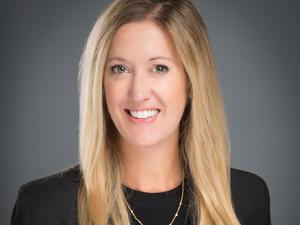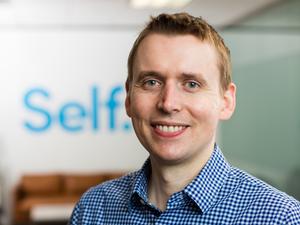
Acquisitions and entry into new verticals are now part of the expansion strategy for Austin-headquartered Aceable Inc.
The education-technology startup announced Dec. 17 it had secured a $50 million investment led by Silicon Valley private equity firm HGGC LLC.
That ranks among the larger funding rounds this year in Austin. Twelve other companies have announced equity funding rounds of at least $50 million in 2020, according to Austin Business Journal and Austin Inno records. Through the third quarter of this year Austin-based companies had raised nearly $1.48 billion in venture capital, according to PitchBook and the National Venture Capital Association — only about 2% less than at the same point in 2019, which set a record for the most VC raised locally since the dot-com bubble.
To date, Aceable has made its mark by offering state-accredited drivers-ed courses, defensive-driving courses and real estate certification courses.
CEO Blake Garrett, who founded Aceable in 2012, said he sees the business growing its offerings to include certifications in food and beverage, hospitality, mortgage, health care, safety and hazard training, teaching and personal training and fitness.
Each of those verticals represent where potential Aceable customers “are today,” said Garrett, a finalist for the past two years in Central Texas' EY Entrepreneur Of The Year awards. One in four working professionals takes some sort of license or certification training a year, according to Aceable data.
Health care education offerings, for example, present a particularly fascinating opportunity because of the inherent ability “to change lives,” the CEO said.
And, safety and hazard training products represent an equally important possibility because of the vast number of manual-labor jobs that remain at the “core of our country and society,” he said. With Aceable offering courses in that area, the company will play a critical role in keeping those types of employees “safer and employed longer in some of the most important jobs in our country.”
Garrett said teaching-certification courses enable U.S. K-12 instructors “to literally level up their lives” and earn higher salaries.
The backing of HGGC supplies capital to acquire “fantastic businesses” and combine them with Aceable’s existing customer set, mature platform and effective go-to-market strategy, Garret said. “Part of the reason working with HGGC will be fun is that we’re just at the beginning of this relationship, and they’ll invest more capital as needed to make acquisitions. Inorganic growth will be a key driver for us as we look to the future.”
“We are big believers in Aceable’s mission and their long track record of success in developing mobile-first education technology,” HGGC partner John Block said in a statement. “Our investment reinforces our confidence in the team and will allow Aceable to grow to the next level while helping people achieve the life they want through continuing education.”
Aceable also offers a new path to the tens of millions of Americans who have lost their jobs since the onset of the Covid-19 pandemic, Garrett said. The company’s online courses afford those stuck at home the training they may need to launch new careers, or augment their current ones. Demand has skyrocketed during the coronavirus for such opportunities.
Funding plans
With the capital infusion, the startup also will continue to expand into more states. Aceable doubled the amount of approved real estate pre-licensing courses available this past year, and plans to obtain required certifications to offer its courses nationwide.
Aceable now offers more than 2,200 hours of educational content and has taught more than 13 million people in 12 states.
The company has raised more than $100 million to date. In December 2018 it closed a $47 million series B funding round. Investors include Sageview Capital, Silverton Partners, Floodgate Fund, Next Coast Venture Partners, Wildcat VC, Nextgen Partners and Capital Factory’s investment fund.
Former RetailMeNot Inc. CEO Marissa Tarleton in May became Aceable's first president.
Aceable currently employs 170. Garrett anticipates adding another 20 to 30 new hires “across all functions” in 2021, he said.
About 95% of the company remains working remotely, Garrett said. The other 5% work in the fulfillment center that Aceable opened in 2018, plus a handful of employees who sometimes work at the company’s downtown headquarters — while following strict safety protocols — at the ABC Bank Tower at Fifth and Rio Grande streets.
The startup will remain primarily in remote-working mode at least through the end of June, Garrett said. The CEO plans to observe the rollout of coronavirus vaccines and will adjust accordingly.
Once the pandemic ends, however, he anticipates that remote work will become a permanent feature of Aceable’s culture — a common refrain among tech CEOs these days, from giant companies such as Twitter Inc. to local startups such as Data.world.
Aceable re-upped its lease in February and has an option for more space on the ABC Bank Tower’s top floor. Brad Buckman and Jon Wheless of Aquila Commercial brokered the deal.
Garrett declined to share revenue figures but said Aceable is profitable. He declined to disclose when Aceable attained that milestone.
Aceable competes with companies such as Oakland-headquartered DriversEd.com Inc. and Interactive Education Concepts Inc., which does business as Improv, based in Woodland Hills, California, according to Owler, a business intelligence firm.
But Garrett focuses on how companies who do online education well may inspire him and his team, rather than how he can beat them. Examples he cited were Pittsburgh-based Duolingo Inc., which operates in the language-learning space, and the consumer-education programs run by California-headquartered Apple Inc. (Nasdaq: AAPL).
As the CEO has said before, he’s not focused on a specific exit strategy. Instead, he’s concentrating on building a company “that can help change people’s lives. Our goal is to be educating 5 million students a year by 2024. Then, we’ll work toward educating 10 million students a year, then we’ll go to 20 million a year. If we deliver that kind of value to our customers who need help, the exit will take care of itself.”








